What does China's stock market crash tell us?
- Published
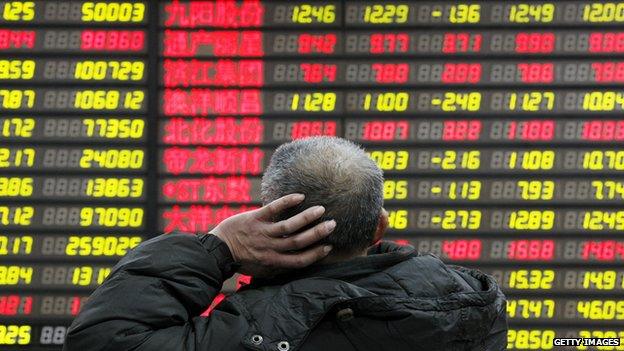
It was up 150% until June. Then it fell by nearly a third. Then it had the strongest two-day rise since the 2008 global crisis.
China's rollercoaster stock market has provoked panic in recent weeks: panic on the part of small investors, who looked on in horror as previous gains were wiped out, and panic - some would argue - on the part of the Chinese government, which did everything it could to stop the slide.
Lending rules were relaxed, making it easier for people to borrow money for investment. Investors holding stakes of more than 5% in companies were banned from selling shares in the next six months, and about 1,300 firms halted trading in their stocks to prevent the value of their businesses falling further.
Four expert witnesses analyse what these dramatic events reveal about China itself for the BBC World Service Inquiry programme.

Linda Yueh: Beijing wants to maintain social stability
Former BBC correspondent Linda Yueh is a Fellow in Economics at St Edmund Hall, Oxford University.
"The Chinese stock market is very important if you look at it in terms of aggregate size. Before the recent falls it was the biggest stock market in Asia by market capitalisation.
"But in terms of the importance of stock market wealth to ordinary Chinese, it isn't actually that important. Maybe at most 50 million households are invested in the stock market - remember it's a country with 1.35 billion people - and of those 50 million households, on average less than 10 to 15% of their assets are held in stocks.
China's stock crash - in 60 seconds
"Retail investors tend to exhibit herding behaviour. When someone sells, other people think they have better information, so they tend to follow. If someone buys it's exactly the same phenomenon in reverse. So that kind of volatility is endemic in the Chinese stock market.
"If you look at how far the market has risen, it's still up since January, despite losing a third of its value in the past couple of weeks. So there's still scope for it to fall further, but by the same token, there's still scope for it to rise further, because of this inherently volatile nature of how Chinese investors act in this market.
"When you have a country where you don't have safety valves, it's very common to have these protests. And they really don't want to have protests because people have lost their shirts on the stock market. I'm convinced that's why the Chinese government stepped in so quickly to prevent the market from falling - they want to maintain social stability during their economic transformation."

Dong Tao: Government was complicit in the boom preceding the bust
Dong Tao studies the Chinese economy for financial services firm Credit Suisse.
"From the very beginning, Beijing took a supportive attitude, and certainly all the comments from the state-controlled media did not stop the trend of rising speculation in China's stock market.
The colour red symbolises good luck or happiness in China
"In the last two, three years, the banks refused to lend. This is not just China's specific problem, but it's more severe in China because the Chinese real economy depends more on bank lending than most of the other developed economies.
"[So the] government encouraged retail money into the capital market. It was a good intention, but it did not work well: instead of this money going to the real economy, this sucked more money from the real economy. And instead of reinvesting the funds raised in the capital market in companies, the money was actually put right back to the stock market, so it defeated the original purpose.
"The first batch of measures from the government was not very effective. The government was trying to use conventional policies, such as cutting interest rates, reducing the transaction cost to boost confidence, but it did not work. You've got to stop the freefall of the index before the market can be stabilised. So at some stage Beijing said 'enough is enough'.
"After this intervention, what's going to happen? If the index is stabilised here, or maybe moving up a little bit, will Beijing continue to buy the shares to keep the index to a certain level? Obviously Beijing cannot intervene in the market forever."

Kerry Brown: Symbolism of functioning stock market is crucial
Kerry Brown is the Director of the China Studies Centre at the University of Sydney
"It's really symbolic. The problem with the stock market is that the government has put a big effort into making Shanghai the financial centre of the future, and so if it has problems, then it impacts upon that symbolic story, impacts upon that story of China being an aspirational economy and not just the sweatshop of the world.
"That symbolism is really what the government was defending. They could probably put up with the stocks collapsing in the way they did - although it was nearly $4 trillion (£2.6tn) lost in one period. I don't think they could live with this idea that one of the key means for them to become an aspirational economy doesn't work.
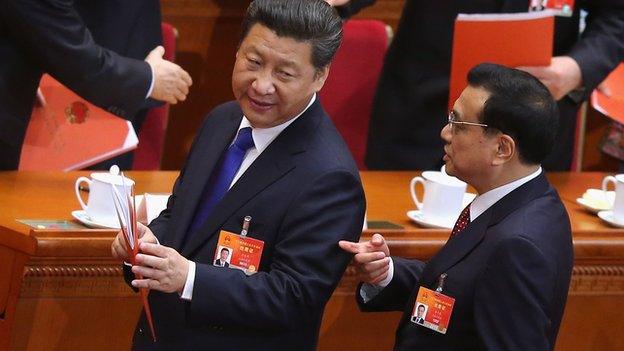
President Xi Jinping (left) and Premier Li Keqiang have put the market at the heart of China's economic reforms
"Any economist would look at [China's population] and say 'we've got to increase our consumption levels'. It's part of that story. So as a major part of this aspirational economy, the economy of the service sector, the economy of the middle class, the stock exchange in Shanghai is like an epicentre.
"It's important for companies to be able to list, to get credibility, to get sources of investment. It's really important as a place for entrepreneurialism. So I think tactically it's very important, and the strategy has taken a bit of a bump. I don't think it's a massive blow, but it raises a lot of questions.
"The whole idea of socialism with Chinese characteristics, which is the government mantra, is paradoxical. Chinese communism in charge of a very capitalistic economy has always been a bit mysterious, and something that those from capitalist countries have been puzzled by.
"It's become even more mysterious because the current administration under Xi Jinping and Li Keqiang has talked about the market being absolutely necessary for further reform. We have to ask 'well, what is the market in China?'"

Ning Wang: Financial sector the weakest link in Chinese economy
Prof Ning Wang is the author of How China Became Capitalist
"When I grew up in the 1970s, we were taught that capitalism was bad, evil. We were taught about exploitation, child labour, working over 12 hours a day.
"We were taught that the future for mankind is socialism, that it's the obligation of the Chinese to liberate the people all over the world, particularly people living under capitalism, which was like a slavery society.
"No doubt if you compare China today, say, with other leading economies - Japan, the US - the state sector certainly is pretty big. But if you compare China today with China, say, in Mao's time, the role of the state certainly has declined a lot, and quite consistently.
"So China becomes a market economy because the state gradually withdrew itself from the economy, and creating more and more room for the market and for the private sector.
John Sudworth meets a shopkeeper and tailor who have lost out
"[Now] we ask people whether they agree that 'under a market economy, people in general are going to be better off, even though some people are rich, some people are poor'. Over 85% of the Chinese would say yes to that question. So despite inequality becoming a huge social problem in China, a high percentage of people endorse the market economy.
"But China still has a long way to go, particularly in terms of the financial sector [which] is still badly controlled by the government. The financial system is still probably one of the weakest links in the Chinese economy today.
"I don't think that the game is over. I hope the Chinese government's going to learn from this. The market works better when the state gets out. Not that they're doing nothing, of course... a modern market economy does not function well unless the state creates a set of rules, rules that are at least transparent and in line with the way the market works itself."
The Inquiry is broadcast on the BBC World Service on Tuesdays at 12:05 GMT/13:05 BST. Listen online or download the podcast.
- Published15 July 2015
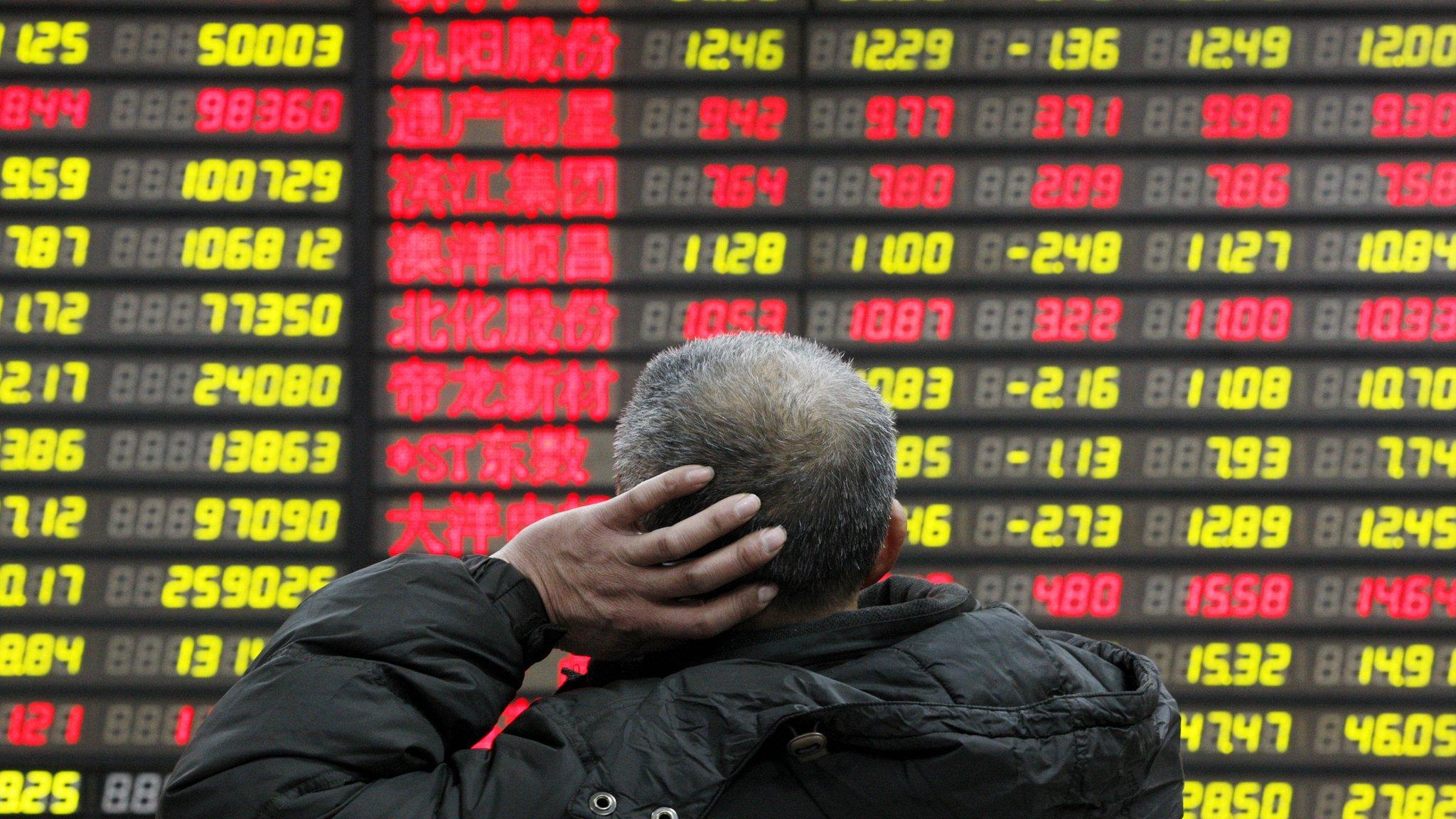
- Published9 July 2015
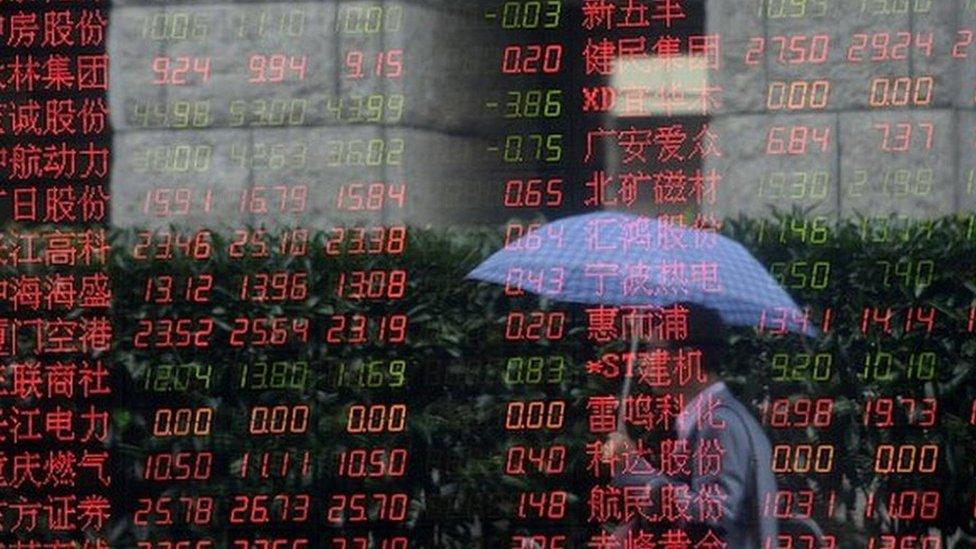
- Published9 July 2015
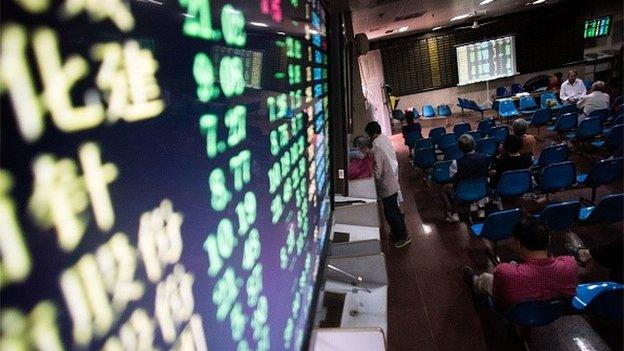
- Published9 July 2015
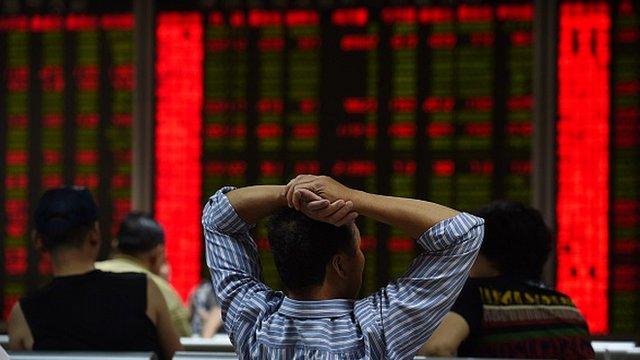
- Published8 July 2015
- Published6 July 2015